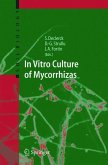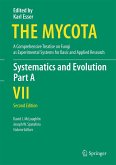The rhythm of life on Earth includes several strong themes contributed by Kingdom Fungi. So why are fungi ignored when theorists ponder the origin of life? Casting aside common theories that life originated in an oceanic primeval soup, in a deep, hot place, or even a warm little pond, this is a mycological perspective on the emergence of life on Earth. The author traces the crucial role played by the first biofilms - products of aerosols, storms, volcanic plumes and rainout from a turbulent atmosphere - which formed in volcanic caves 4 billion years ago. Moore describes how these biofilms contributed to the formation of the first prokaryotic cells, and later, unicellular stem eukaryotes, highlighting the role of the fungal grade of organisation in the evolution of higher organisms. Based on the latest research, this is a unique account of the origin of life and its evolutionary diversity to the present day.
Hinweis: Dieser Artikel kann nur an eine deutsche Lieferadresse ausgeliefert werden.
Hinweis: Dieser Artikel kann nur an eine deutsche Lieferadresse ausgeliefert werden.
'In a wonderful introduction to this wide and exciting subject, and ensuring accessibility to non-specialist readers, key features of fungal biology are introduced, as is current thinking on the beginnings of the solar system, the formation of the Earth and its Moon, and the possible origins of the building blocks of life, including panspermia, the ET origin of life on earth. Central in this thought provoking book is a consideration of the definition of what is life, from the philosophical to the rigidly scientific. This definition is key to deciding on what was LUCA, the last universal common ancestor. Current views on this are well reviewed, critically analysed and dissected. A fascinating read, a myco-centric version of the origin of the eukaryotes, firmly dismissing the animal biased theories.' J. L. Faull, Birkbeck, University of London








